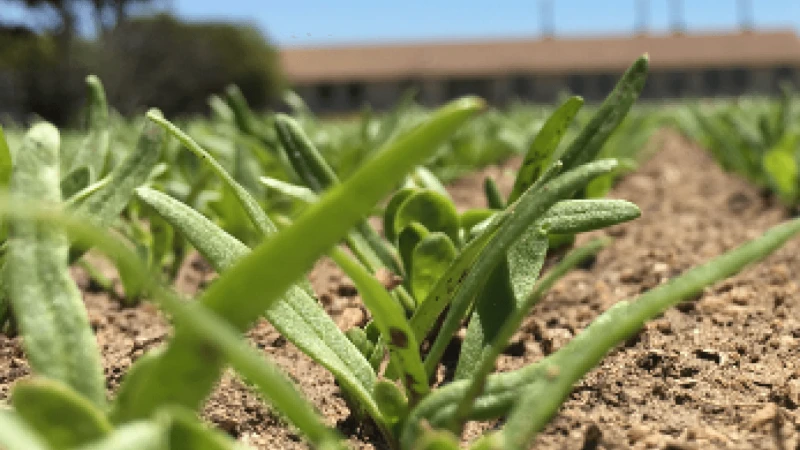Viewpoint: ‘Plant breeding innovations help ramp up food production while making farms more climate resilient, profitable, and environmentally friendly’
Viewpoint: ‘Plant breeding innovations help ramp up food production while making farms more climate resilient, profitable, and environmentally friendly’


One in four people globally, and rising, are unable to afford a healthy diet. COVID-19 has exacerbated this trend by disrupting food production and distribution, driving up by 20 percent the number of people threatened by hunger in 2020. The pandemic is unfolding amidst an environmental and climate crisis which is undermining food production and our ability to nourish the world.
According to Barbara Wells, Global Director for Genetic Innovation at CGIAR: “World-class science is vital for facilitating farmer adaptation and mitigating our food system’s contribution to climate change. Plant-breeding innovations can help ramp up food production while making farms more climate resilient, profitable, and environmentally friendly”.
“Technologies such as gene editing, which enable scientists to make targeted changes to a crop’s DNA, can accelerate the development of more disease-resistant, water-efficient varieties that can improve food production and nutrition in areas that are especially vulnerable to climate change,” Dr. Wells explained.
Over the next five years, the IGI and CGIAR will use the latest breakthroughs in genomic science to enhance the resilience and productivity of farmers in low- and middle-income countries and improve the wellbeing and livelihoods of women and men in some of the world’s poorest communities.
This is an excerpt. Read the original post here.

 | Videos | More... |

Video: Nuclear energy will destroy us? Global warming is an existential threat? Chemicals are massacring bees? Donate to the Green Industrial Complex!
 | Bees & Pollinators | More... |

GLP podcast: Science journalism is a mess. Here’s how to fix it

Mosquito massacre: Can we safely tackle malaria with a CRISPR gene drive?

Are we facing an ‘Insect Apocalypse’ caused by ‘intensive, industrial’ farming and agricultural chemicals? The media say yes; Science says ‘no’
 | Infographics | More... |

Infographic: Global regulatory and health research agencies on whether glyphosate causes cancer
 | GMO FAQs | More... |

Why is there controversy over GMO foods but not GMO drugs?

How are GMOs labeled around the world?

How does genetic engineering differ from conventional breeding?
 | GLP Profiles | More... |

Alex Jones: Right-wing conspiracy theorist stokes fear of GMOs, pesticides to sell ‘health supplements’




 Viewpoint — Fact checking MAHA mythmakers: How wellness influencers and RFK, Jr. undermine American science and health
Viewpoint — Fact checking MAHA mythmakers: How wellness influencers and RFK, Jr. undermine American science and health Viewpoint: Video — Big Solar is gobbling up productive agricultural land and hurting farmers yet providing little energy or sustainabilty gains
Viewpoint: Video — Big Solar is gobbling up productive agricultural land and hurting farmers yet providing little energy or sustainabilty gains Trust issues: What happens when therapists use ChatGPT?
Trust issues: What happens when therapists use ChatGPT? Fighting deforestation with CO2: Biotechnology breakthrough creates sustainable palm oil alternative for cosmetics
Fighting deforestation with CO2: Biotechnology breakthrough creates sustainable palm oil alternative for cosmetics California, Washington, Oregon forge immunization alliance to safeguard vaccine access against federal undermining
California, Washington, Oregon forge immunization alliance to safeguard vaccine access against federal undermining 30-year-old tomato line shows genetic resistance to devastating virus
30-year-old tomato line shows genetic resistance to devastating virus The free-range chicken dilemma: Better for birds, but with substantial costs
The free-range chicken dilemma: Better for birds, but with substantial costs ‘You have to treat the brain first’: Rethinking chronic pain with Sanjay Gupta
‘You have to treat the brain first’: Rethinking chronic pain with Sanjay Gupta
